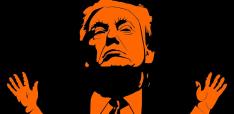What I Read in the Year III of Covid: An Annotated Summary

I will try to imitate my colleague @milescorak who nicely summarized his work and readings in 2021.
Most of my work was on my forthcoming book “Through the lens of inequality” that looks at how inequality was perceived and framed (popular word these days) from before the French Revolution to the fall of the Berlin Wall.
The book covers Quesnay, Adam Smith, Ricardo, Marx, Pareto and Kuznets. And then the last chapter looks at inequality studies in communist and capitalist countries between 1960 and 1990.
The most challenging chapters are the last one (why the eclipse of inequality studies?) and the one on Marx. Marx is always a challenge both because of the breadth of his writings and combination of philosophy, history, literature and economics in them; as well as tons of commentary it produced during the past 150 years.
So, in terms of this year’s readings, let me start with the Marxiana.
I re-read all three volumes of Leszek Kolakowski’s “Main currents of Marxism” that I read 30 years ago. Absolutely brilliant. Kolakowski’s erudition is breathtaking. You wonder: Oh, why I cannot know as much as he does?
He also has the advantage of having lived in Moscow in the 1950s and speaking Russian, so he covers Russian (often Stalinist) authors who are almost unknown in the West.
The towering presence in the books is Lukacs’s. Although Kolakowski is critical of him (“intellect in the service of a dogma”), there is no doubt that Lukacs’s influence on Kolakowski was enormous. (He says it himself in the preface.) According to Kolakowski (and not only him), Lukacs was the most important Marxist philosopher of the last century. Gramsci also gets an “honorable mention” as does Sorel, and even Lenin for his “Philosophical Notebooks” (on Hegel) of whose existence I have totally forgotten.
Here is my Substack review of Kolakowski’s view of Trotsky. Not very flattering to say the least.
https://branko2f7.substack.com/p/trotsky-after-kolakowski
This Fall I read Shlomo Avineri’s “The Social and Political Thought of Karl Marx.” It is a beautiful book that tries to present Marx as a West European liberal thinker. I think that Avineri downplays the revolutionary character of Marx especially in the context of 1848-51 and the Paris Commune. Marx can never be seen as a liberal *only*. Perhaps liberal too--in some ways--but surely not as *only*. Avineri, unjustifiably I think, takes a super critical attitude towards Engels who is accused of misinterpreting Marx. I wish I had reviewed the book—perhaps another time.
I have to say that neither Kolakowski nor Avineri have directly influenced my Marx chapter—simply because they do not discuss much Marx’s economics. But indirectly they are absolutely invaluable. Reading them, and also Marx's "Economic and philosophic manuscripts of 1844" (which I read for the first time this year too) made me realize how important is Hegel for understanding Marx as a philosopher. Unfortunately, I have not read any of Hegel, and even more unfortunately, I do not think I will start now.
S S Prawer has written a delightful book on Marx’s use of literature in his writings going over Marx’s classical education, his love for Greek writers and philosophers (Marx’s dissertation was on Epicurus) and nothing less than adoration of Shakespeare, Dante, Balzac and Goethe. Marx largely learned English from reading Shakespeare whom he would cite in extenso to his children. In the last ten years of his life Marx also learned Russian so that he could read Russian authors in the original. I would recommend the book to all lovers of literature.
Finally, one disappointing piece of Marxiana were Benedetto Croce’s debates with Labriola (and Pareto) on Marx’s theory of value, marginalism, individualism etc. I did not like Croce’s style that is full of rhetorical questions (on a few pages I circled all the ?; they would run into a dozen), easy metaphors, sentences that seem often to be both simple and too complicated. I never finished the book.
Adam Smith is (obviously) one of the six economists in my forthcoming book. I wrote the chapter on Smith the year before, so this year I read only Dennis Rasmussen’s “The infidel and the professor” (published in 2018), a story of the friendship between David Hume and Adam Smith. I reviewed it here.
https://branko2f7.substack.com/p/through-the-glass-darkly
A very nice and light book. I was interested in the relationship between Smith and the physiocrats but the book barely mentions it. There is apparently no new information on it.
My interest in China continued unabated this year.
A monumental history of the Cultural Revolution was published in English in 2021. I reviewed Yang Jisheng book in two separate reviews, one critical, another laudatory (see below).
https://brankomilanovic.substack.com/p/the-world-turned-upside-downa-critical
and
https://brankomilanovic.substack.com/p/license-to-kill-the-world-turned
There is nothing I need to add now to these reviews: the book is enormous, extremely well-researched, and for me it was a trip down the memory lane as I do remember many of the events from the 1970s: Chu Enlai’s death, Mao’s death, Hua Guofeng (whom I saw, from distance, live when he visited Belgrade in the late 1970s), the Gang of Four, the “capitalist roader” Deng….
Isabella Weber’s “How China escaped the shock therapy” justifiably attracted huge attention. I participated in one of her book talks. I discuss the shock therapy and indebtedness of Eastern Europe (the themes addressed by Weber in the Chinese context) in this post.
https://branko2f7.substack.com/p/how-china-escaped-and-eastern-europe
I also read Julia Lovell’s “Maoism: AGlobal History.” It is a good book, fun to read, but with a somewhat exaggerated, or overdone, thesis of Maoism as a global movement. Still you learn a lot about Abimael Guzman of the Sendero Luminoso notoriety (perhaps the best chapter of the book), the Khmer Rouge, the Sino-Soviet split, Enver Hoxha etc. I reviewed the book here:
https://glineq.blogspot.com/2021/05/a-global-ideology-that-was-neither.html
I enjoyed Stephen Pratt’s “Imperial Twilight” which describes how Britain ended up waging a war (the first Opium War) against China. My son recommended the book and I read it on the beach this Summer. Thus this Summer’s vacation will forever remain linked in my memory with this book. (For some reason, my Summer book choices always turned well.) The Opium War was just the beginning of “the century of humiliation” but one does get the idea how China was mistreated by Western powers. I reviewed the book here.
https://branko2f7.substack.com/p/nobodys-war
Should I stop now? Let me just mention Anthea Roberts’ and Nicholas Lamp’s “Six faces of globalization” that takes off from the “elephant chart” to study how different narratives can be created around it. Quite a fascinating book especially at the time of Trump, middle class discontent in the West, and Sino-US conflict.
https://www.hup.harvard.edu/catalog.php?isbn=9780674245952&content=bios
I also read John Lewis Gaddis book on the Cold War. I knew that he was the premier US historian of the Cold War and was curious how, in this popularly written summary, he describes it. Gaddis is a very good writer, but the book is ultimately disappointing. Perhaps it is an unfair comparison but when you think how Thucydides was able to see the war from the point of view of different participants, you cannot but be disappointed to read Gaddis who sees it only from the Foggy Bottom and Pentagon perspectives. I felt a bit sorry for students whose sole exposure to the Cold War history might come from Gaddis.
This is about all that is worth mentioning.
I do not think that my reading priorities will change much in 2022. Will continue with China, Marx, Simon Kuznets (my author No. 6), inequality literature of the 1970s and 1980s (which is rather boring, so I did not review it here)….If a good book on World War I comes along by some chance…
This first appeared on Branko's blog and was reposted with permission.


